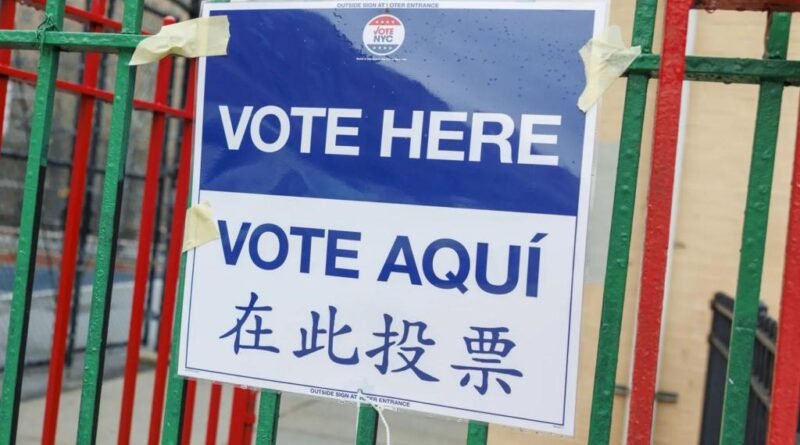The Democratic Party’s division within nonwhite voters, the misleading ‘job creation’ tactic, and other insights

Liberal: Dems’ Fracturing Nonwhite Base
“The Democrats’ eroding support among Hispanic, Black, and Asian American voters is making progressive heads explode,” chuckles Will Marshall at The Hill.
But “despite efforts by progressive activists to lump them together in an intersectional fellowship of victimhood, people of color often have sharply divergent views and interests.” Asian Americans and Hispanics, for example, are “in solid opposition to racial reparations.”
It “points to the futility of trying to pigeonhole voters by race, ethnicity and continent of origin.”
With nonwhite working-class voters in revolt, “Democrats should shift their focus from identity to class.”
By “reorienting their policies around the economic priorities and cultural moderation of working-class voters, Democrats can win them across race and ethnic lines.”
Libertarian: The ‘Job Creation’ Ruse
When you pull back the curtain on the “job creation” routine, “you’ll see that promises to rebuild America through industrial policy are just plain old corporate welfare,” thunders Reason’s Veronique de Rugy.
President Biden and Congress “have authorized between $1.2 and $2.1 trillion in domestic subsidies” for favored sectors like “clean energy, advanced manufacturing, construction, transportation, and broadband.”
The right’s industrial policy targets boosting “manufacturing employment for men left behind in the Rust Belt.”
The case for “showering businesses with billions more in subsidies” is belied by “America’s remarkably low unemployment rate.”
Industrial policy under Biden has served as “a conduit carrying corporate welfare” to benefit “the already powerful and wealthy” and hinder “innovation and market-driven economic opportunities.”
In reality, “sustainable employment and economic prosperity will be generated not by subsidies but by unleashing market forces.”
Culture critic: Gen Z Moves Home
It’s become common to tell “young adults that they should live with their parents” to save money, notes City Journal’s Allison Schrager.
Yes, “rents are very high relative to income,” and it was once “normal to live with your family until you started out on your own.”
So “in theory, there is nothing wrong with this trend.” But “living with one’s parents can signal less risk-taking and independence.”
And “living at home has become much more common for young men” even as “they are less likely to work or to marry.”
Indeed, “my 25-year-old self would probably have said” that “while I was spending money I might otherwise save” by living on my own, “I was also making an investment in vital life skills.”
Election watch: Don & Hunter’s Dueling Trials
Hunter Biden’s trials, set for June, “will provide a counterpoint” to Donald Trump’s, remarks The Wall Street Journal’s Kimberley A. Strassel.
While “Joe Biden’s supporters will insist Hunter’s problems aren’t the president’s” and are “small potatoes” vs. Trump’s, voters “like to equal out partisan scenarios,” and Republicans have connected Hunter’s misbehavior to “a tale of Joe’s influence peddling.”
And though Trump’s legal woes have helped him politically, “polls show little sympathy” for Hunter, a “privileged political child who traded off his family name.”
The ex-prez’s trials “could turn into a liability if he lands a felony conviction”; some supporters see that as disqualifying.
Yet Hunter’s indictments “are cruising toward potentially messy ends,” offering a new “GOP cudgel.”
It’s “one more reason Joe should have rethought that re-election bid.”
Progressive: DeSantis Is Right on Social Media
“A law just signed by Florida Republican Gov. Ron DeSantis” that “precludes kids under age 14 from having social media accounts and requires parental permission for 14- and 15-year-olds to have them” is “brilliant — and should be a model for the nation,” cheers Kara Alaimo at CNN.
“Keeping younger kids off social networks is unquestionably what’s best for them,” as research “has found that greater social media use at particular ages predicts lower life satisfaction a year later.”
Girls “appear to be particularly vulnerable on social media” at ages 11 to 13 and 19; for boys, it’s “ages 14-15 and again as well at age 19.”
DeSantis’ “law keeps young people away from the many harms they face online.”
— Compiled by The Post Editorial Board



